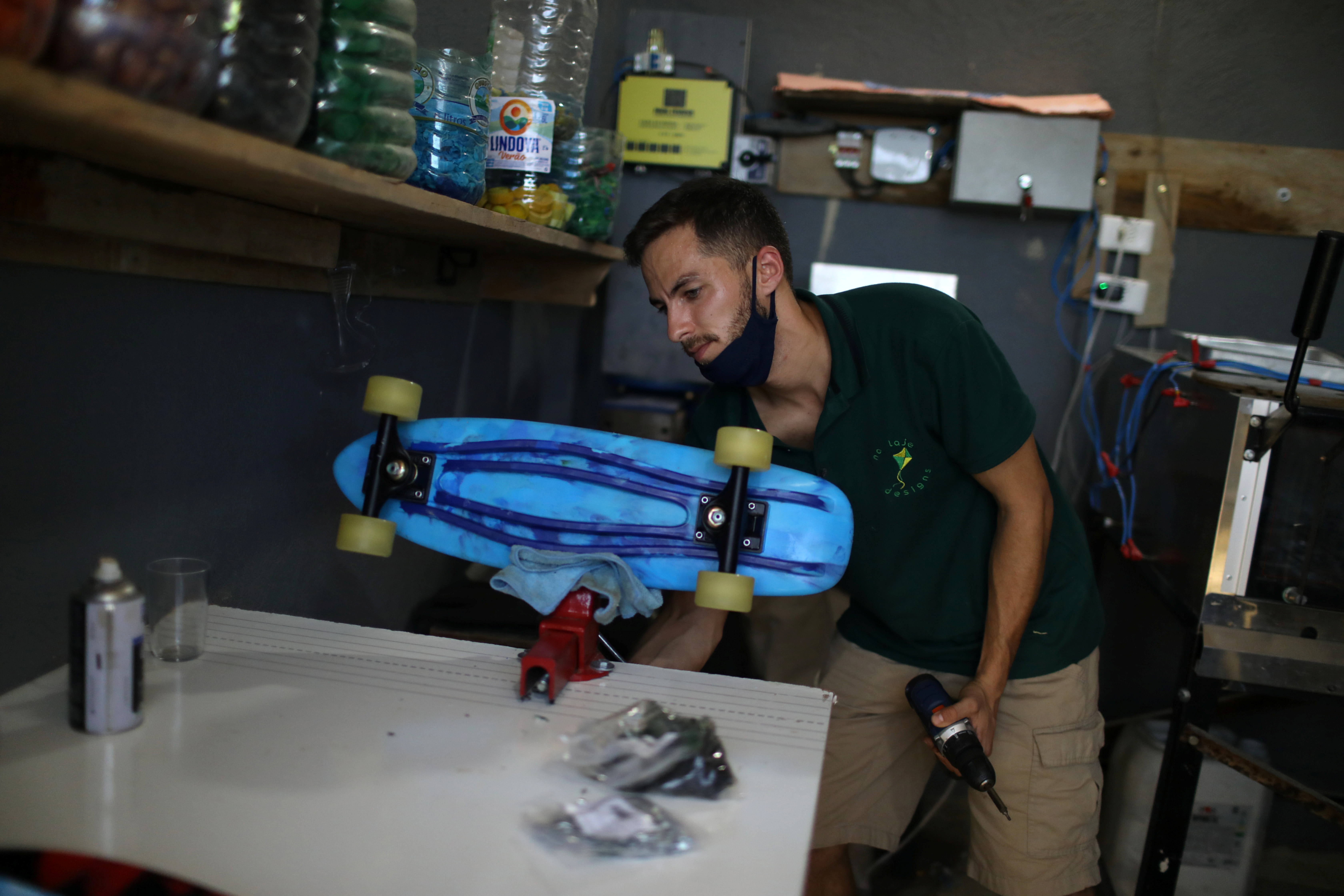In Brazil favela, skateboards made of bottle caps promote recycling


AsiaOne has launched EarthOne, a new section dedicated to environmental issues — because we love the planet and we believe science. Find articles like this there.
RIO DE JANEIRO - In Brazil's largest favela of Rocinha, on the outskirts of Rio de Janeiro, a local project aims to promote recycling by donating food in exchange for bottle caps that are used to build skateboards.
Each colourful skateboard is made of some 500 plastic bottle caps that are crushed, melted, placed into a mould and then baked in an industrial pizza oven. Each one takes about two hours to complete.
"It's made 100 per cent from recycling plastic that is collected, recycled and fabricated here in Rocinha," said Arian Rayegani, a Canadian mechanical engineer who heads the Na Laje Designs project.

The project gives food donations in exchange for the bottle caps.
"We are not a skateboard factory, it's bigger than this. We want to create a hub and a centre of innovation for recycling here in Rocinha," Rayegani said.
"Rocinha produces 230 tonnes of garbage per day and there is no recycling and waste management locally here that actually deals with this implementation and that is what we want to do," Rayegani added.
"Today we work on plastic but tomorrow we want to be able to recycle paper, metal, glass and beyond that. We want to bring the next generation, bring the kids here, to learn about it, to prevent the issue."
ALSO READ: In major ocean polluter Philippines, recycling group turns plastic waste into planks